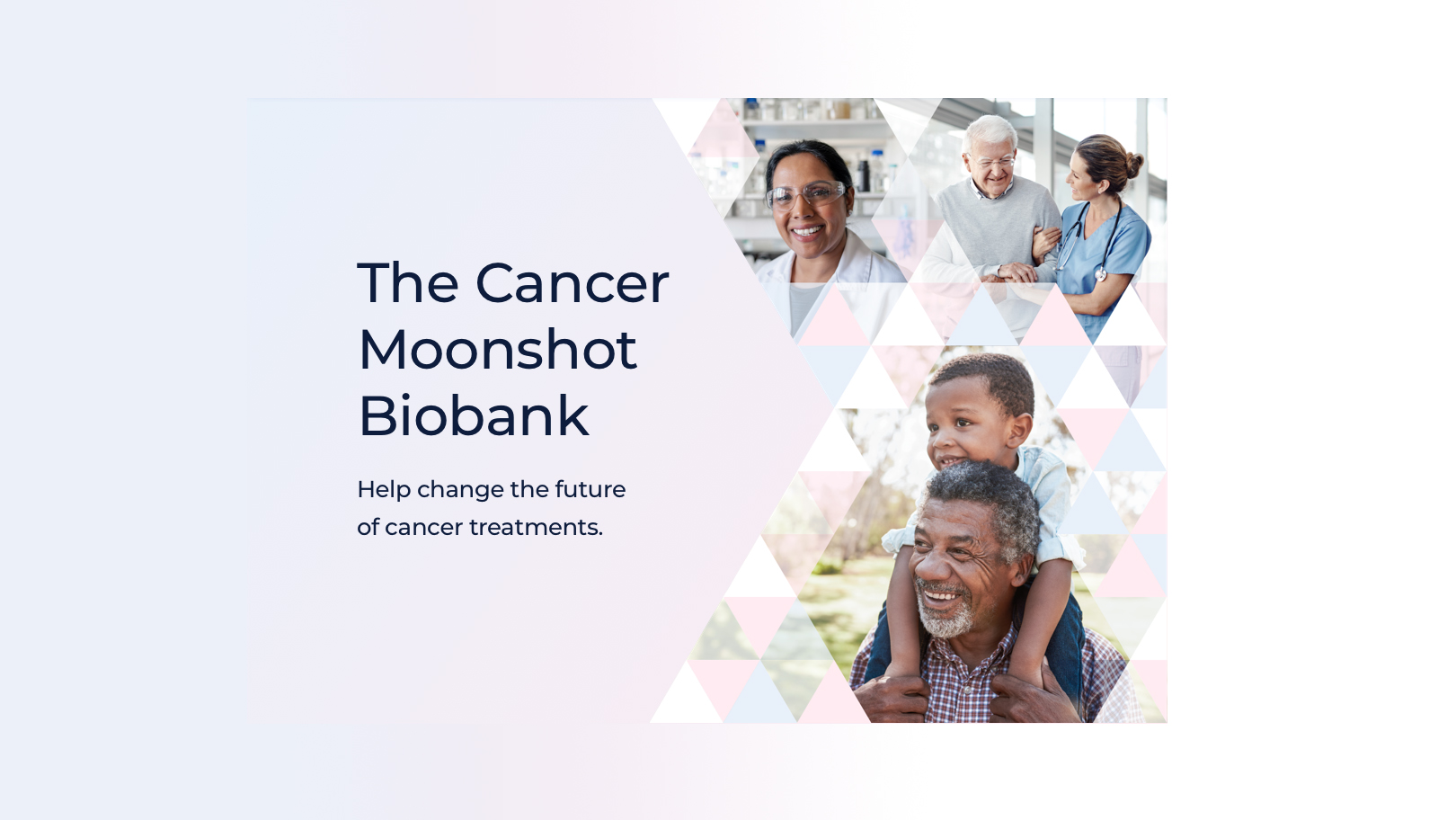The U.S. National Cancer Institute (NCI) Cancer Moonshot Biobank launched in September 2020, with the aim of accelerating cancer research by creating a resource of well-annotated, longitudinal cancer biospecimens from patients receiving standard-of-care therapy. The Biobank will serve research needs of funded grantees working to better understand the mechanisms and systems biology of drug resistance and sensitivity.
Obtaining longitudinal biopsies from the same patient is the key to advancing research about why drug treatments can initially work but then fail over time. The Biobank aims to collect biospecimens (blood and tissue) and associated clinical data from a minimum of 1,000 patients with cancer aged 13 and older during multiple longitudinal time points over the course of treatment and at progression, if applicable. Archival and/or surgical tissue is included whenever possible. The study is initially focusing on recruiting patients receiving standard-of-care therapies for seven cancer types: acute myeloid leukemia, multiple myeloma, melanoma, lung, prostate, gastroesophageal, and colorectal cancers. Biospecimens and associated data will be collected for up to 5 years. The Biobank provides a clinical genomic sequence panel test (biomarker test) that includes characterization of variants in many cancer-related genes. This biomarker test is performed in a CLIA-certified laboratory and at no cost to the patient. Results are provided to physicians and patients. A central biorepository operates under standardized procedures to support biospecimen collection, processing, and storage activities. Fresh tissues, when available, are sent directly to the NCI’s Patient Derived Models Repository, a centralized facility that creates and distributes animal models for cancer research.
NCI is partnering on this project with medical institutions across the country who are part of the NCI Community Oncology Research Program (NCORP). Under a single study protocol, NCORP sites engage eligible local patients. Study tools provided by NCI include the following:
- An electronic consent platform, available in English and Spanish, that is hosted and managed centrally on a provided iPad, with paper consent also available in multiple languages;
- An online remote data entry platform; and
- An interactive engagement website with secure login for participants and providers.
The engagement website enables secure viewing of clinical biomarker test reports and consent forms and lists the participating NCORP sites to provide clear information to patients and patient online communities. NCORP sites may apply for supplemental funds to support local engagement projects. These local engagement projects might include the development of community advisory boards or focus groups to better understand the needs of the community and approaches for outreach; local meetings held by community leaders and/or advocacy groups to promote awareness of the Biobank and its mission; and the use of brochures and other media to convey important information or help bridge gaps in knowledge to participants or potential participants.
Together, this set of resources supports participant engagement, a central tenet of the Cancer Moonshot Initiative. Through engagement, the Biobank aims to encourage dialog and build trust between the patient community, providers, and the Biobank. The goal is to create a diverse cohort that includes patients from rural communities as well as members of racial and ethnic minority groups who have been underrepresented in research, may be diagnosed with more advanced stages of cancer, and may have poorer health outcomes. Another feature of the Biobank is an embedded sub-study of related Ethical, Legal, and Social Issues (ELSI). A researcher or group of researchers will be selected to conduct an ELSI sub-study for the Biobank on a range of topics that could include patient and provider attitudes toward the use of eConsent, participant experiences in the Biobank program, and usefulness and understanding of clinical biomarker test results.
The Cancer Moonshot Biobank invites questions and comments at [email protected].






